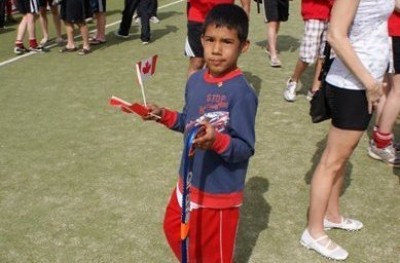
Sports can be classified as early or late specialization. Sports such as gymnastics and figure skating qualify as early specialization, while other sports such as soccer and field hockey are classified as late specialization.
Because field hockey is a late specialization sport, LTHD actively discourages early specialization since premature specialization contributes to imbalanced physical development, overuse injuries, early burnout, and inadequate development of movement and sports skills.
In harmony with the Long-Term Athlete Development (LTAD) model developed by Canadian Sports Centres and currently being adopted by over 50 sports organizations in Canada and around the world, LTHD recognizes these 7 stages in the development of field hockey players:
- Stage 1: Active Start: Ages 0-U6
- Stage 2: FunStix: Ages 6-10
- Stage 3: Learning to Train: Ages 9-12 males, 8-11 females
- Stage 4: Training to Train: Ages 12-16 males, 11-15 females
- Stage 5: Training to Compete: Ages 16-19
- Stage 6: Training to Win: Ages 19 and beyond
- Stage 7: Hockey for Life: All ages
The first three stages of LTHD encourage physical literacy for all players, regardless of their abilities or disabilities, and correspond to the ages prior to the adolescent growth spurt (PHV). Stages four, five, and six focus on developing excellence and correspond to PHV’s onset and aftermath. Stage seven encourages lifelong physical activity, and players may choose to enter this stage at any time in their playing career.
FHC has identified the LTHD pathway as the desired model for player development in Canada. LTHD answers the need to develop elite players for international competitions such as the World Cup, Olympic Games, and Champions Trophy. It also promotes field hockey as an active lifestyle for athletes at all ages and levels of ability.
Detailed guidelines are provided in this document for the physical, technical, tactical, mental, and health components recognized as essential to athlete development in each stage of our sport.

